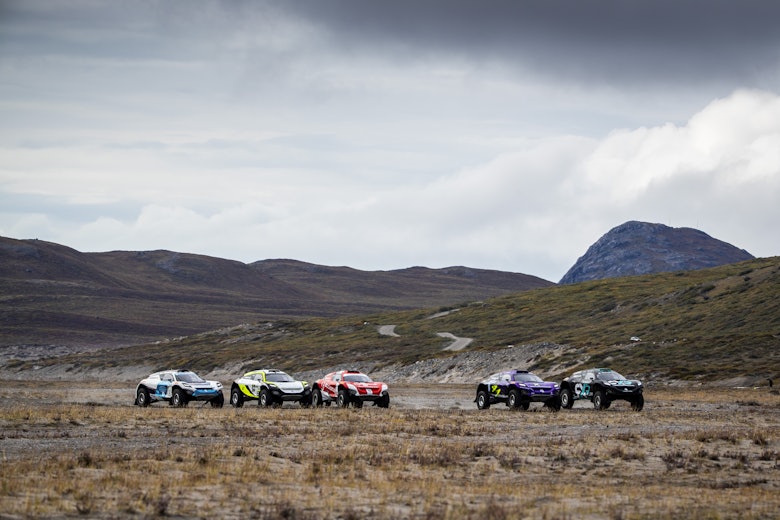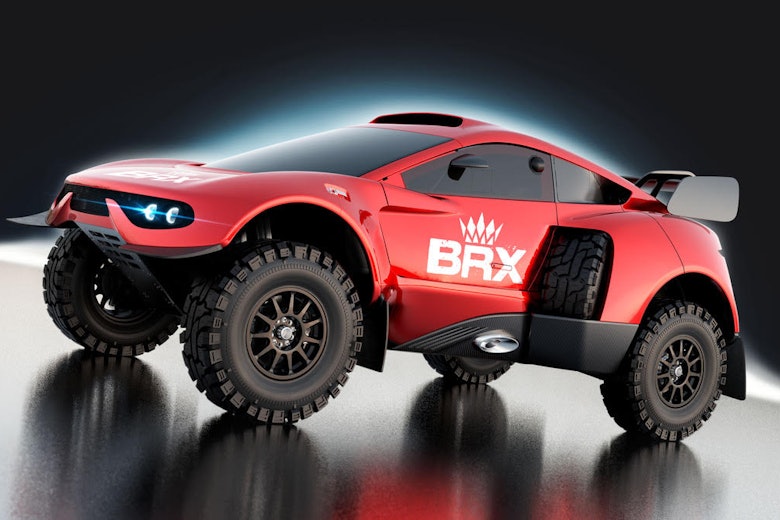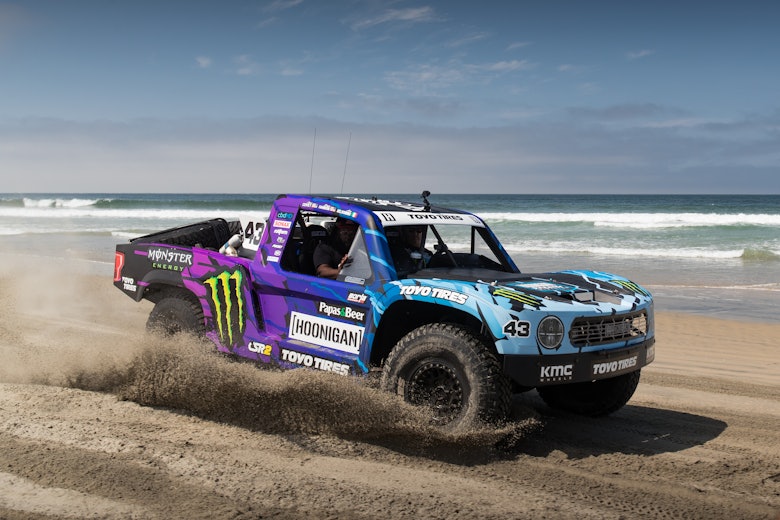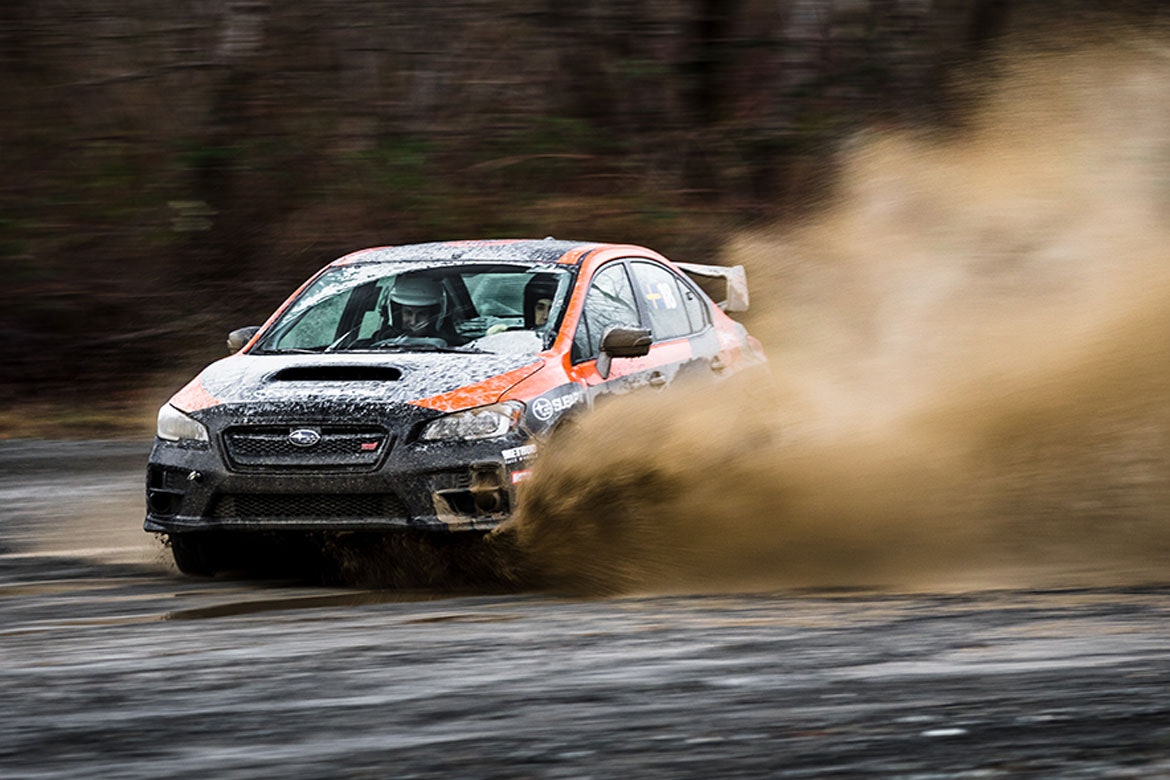Audi’s head of factory motorsport programs, Andreas Roos, says that there is “still a lot to do” before the firm’s all-electric RS Q e-tron makes its Dakar Rally bow in January, following an extensive two-week test in Morocco.
The brand is entering the classic rally raid as a factory entry for the first time next year, using a highly innovative electric car as part of a refocus in its motorsport activities.
It will be part of a brand-new T1+ category for the Dakar, which will also be the first round of the FIA Cross-Country Rallies season, which has been awarded full FIA world championship status for 2022.
Audi had already tested its car in Germany and Spain since its July shakedown, but the trip to Morocco was the first true outing in the sort of conditions expected on the Dakar in Saudi Arabia.
Each of the team’s drivers – Stéphane Peterhansel, Carlos Sainz and Mattias Ekström – were present at the test, with the car understandably hitting some initial teething problems.
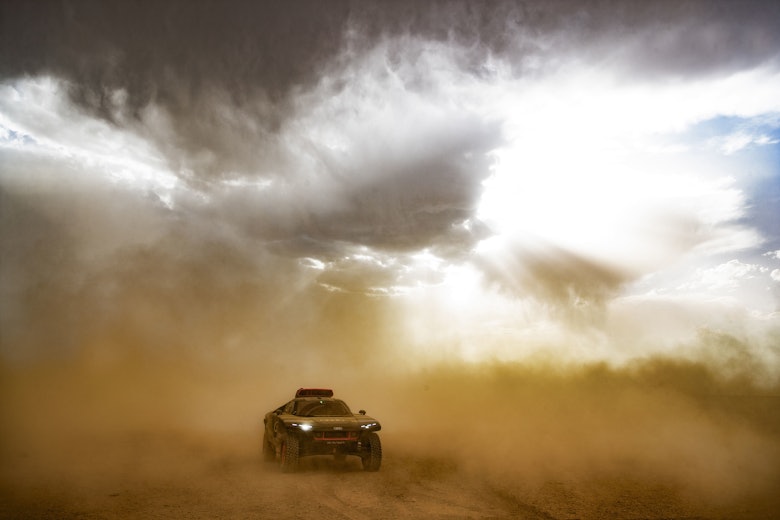
“The thermometer climbed to well over 40° celsius at times,” said Sven Quandt, whose Q Motorsport company runs the operational side of Audi’s factory program.
“Sandstorms also hampered the testing and as expected, some new problems arose in the high temperatures, which repeatedly caused interruptions to the testing and needed to be solved before the next test.”
Such is the complexity of the all-electric car, the decision to put it through the most extreme conditions was in fact a deliberate ploy by Audi, as it gained more knowledge of how its three MGUs (Motor-Generator Units) operated under intense heat.
These teething issues are far from demoralizing and instead part of the development process to make the car stronger ahead of its competitive debut.
“We expect much lower temperatures at the Dakar Rally,” explains Roos.
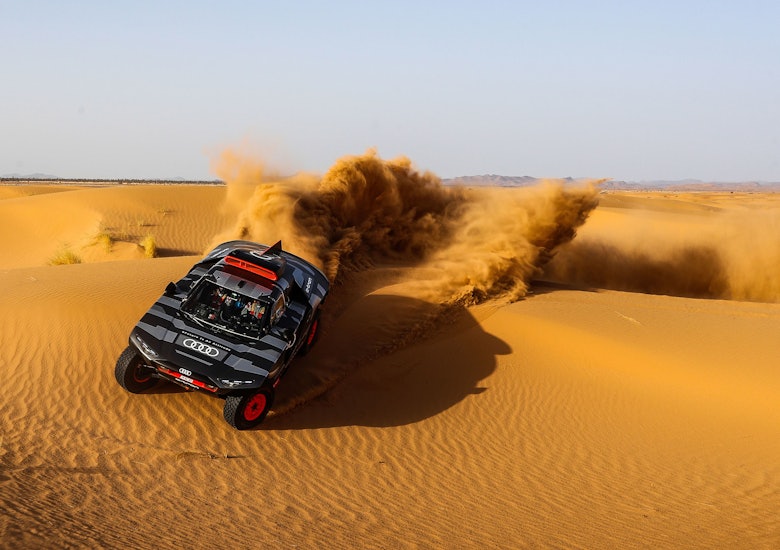
“Nevertheless, we deliberately went to Morocco to test our concept under the most extreme conditions. Components such as the MGU, for example, were basically not developed for use in such high ambient temperatures, but the drivetrain and other components were also pushed to their limits or even beyond by the heat.
“The insights we gained in Morocco are invaluable, but they also show us that still a lot to do before the Dakar Rally and there is not much time left.”
Roos also revealed that the team is focusing its efforts on optimizing temperature management within the high-voltage battery as well, with much of what has been developed in the brand’s road cars being transferred to the RS Q e-tron.
It is expected that Audi will enter at least one rally before the end of the year to prepare for its Dakar bow, although which one that will be remains unconfirmed as yet.
Prodrive is believed to be entering the Rallye du Maroc which takes place on October 7-13, while December’s Ha’il International Baja in Saudi Arabia has become the traditional curtain-raiser to the Dakar.



